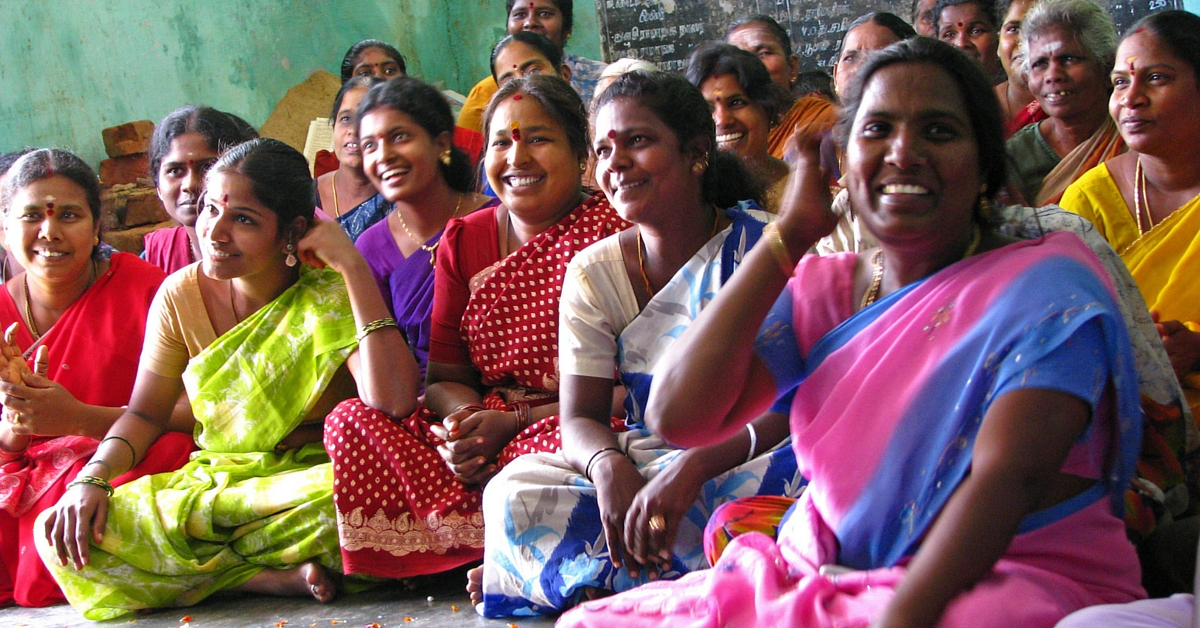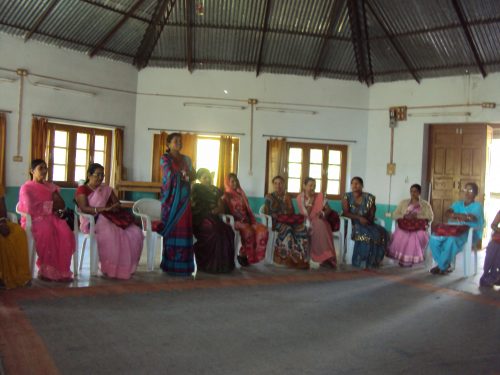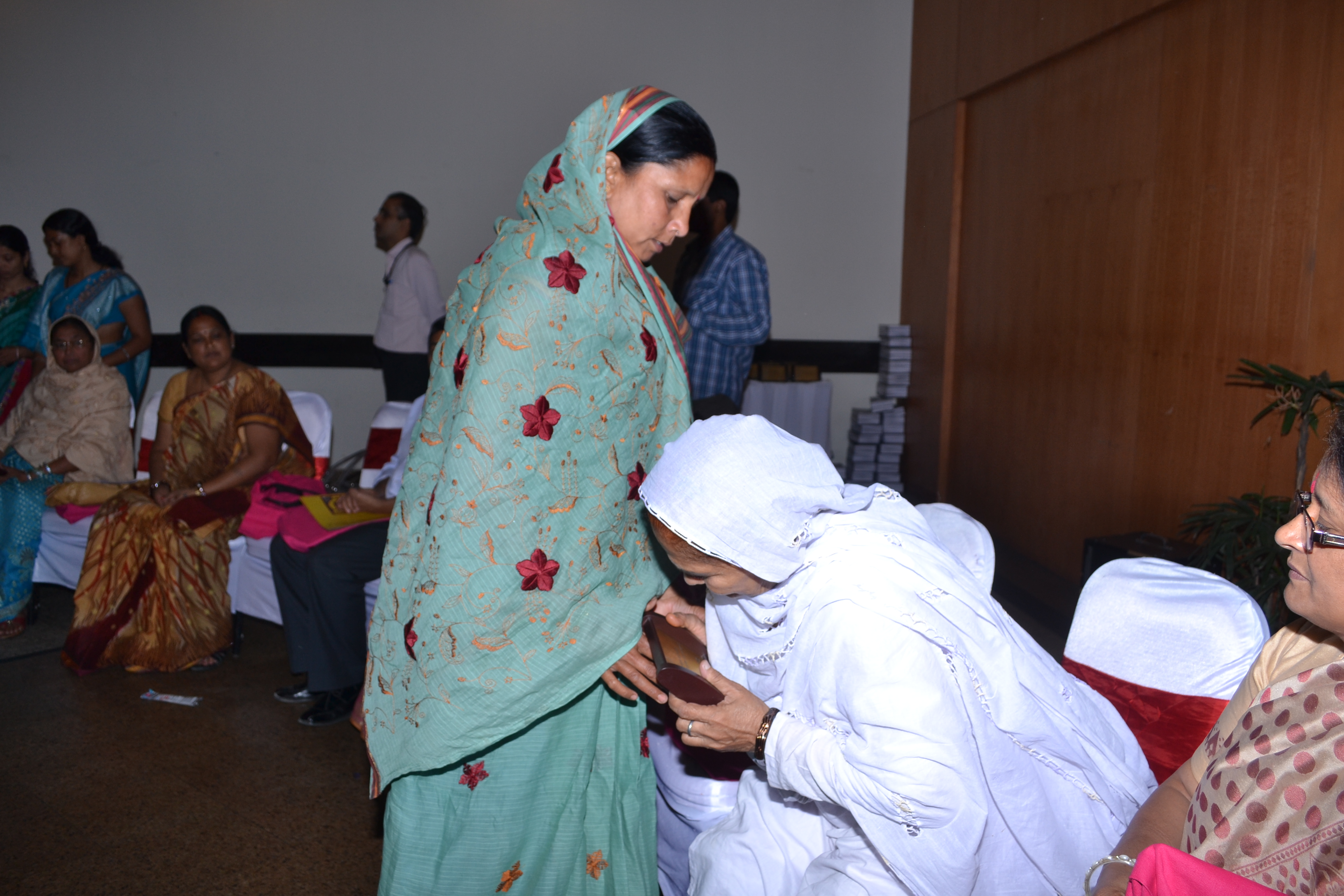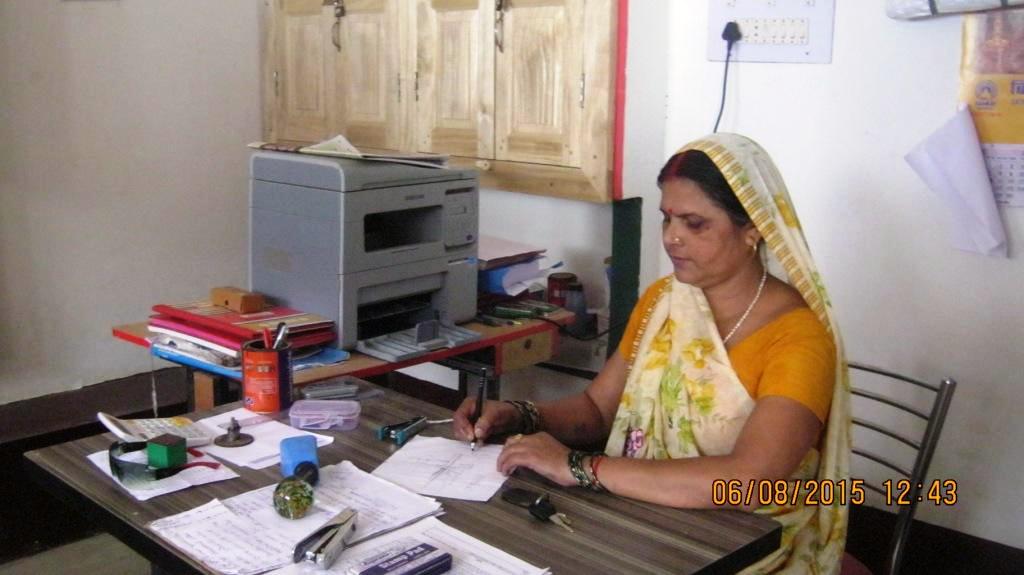These Incredible Women Are Emerging as Health Champions in Rural Bihar
In a state where only 34 per cent women receive ante-natal care and a mere 22 per cent go in for institutional delivery, and where there is a dire need to shore up women’s access to contraception, elected women like Meera, Savitri and Manju have overcome political, cultural and social barriers to safeguard women’s right to health.

In a state where only 34 per cent women receive ante-natal care and a mere 22 per cent go in for institutional delivery, and where there is a dire need to shore up women’s access to contraception, elected women like Meera, Savitri and Manju have overcome political, cultural and social barriers to safeguard women’s right to health.
Meera Devi, 48, a ward member from Loma panchayat in Muzzaffarpur district’s Gaighat block, has emerged as a true champion of healthcare in her panchayat, which is highly flood-prone and largely inhabited by scheduled caste and other backward class communities.
This is not a region where women, even those duly elected, move around freely – and, in the beginning, Meera followed this social diktat.

While she did attend to the matters that were brought to her notice, effectively, it was a government-aided leadership training she participated in a few years back that sparked her interest in matters of health and sanitation. Not only did she learn about the various related government schemes and benefits, including the availability of an untied fund by the National Rural Health Mission (NHM), but she also fully realised the critical need for having functional infrastructure and a motivated group of frontline health workers like the Accredited Social Health Activist (ASHA) and Auxiliary Nurse Midwife (ANM).
“One day, even though it was not quite advisable, I decided to visit our local Health Sub-Centre. I wanted to see its existing condition and the kind of services available there. When I arrived after a considerable walk, to my utter surprise, I found it locked. So I called the ANM who told me that she was on her rounds in the village. Upon further inquiries with families nearby I came to know that the sub-centre was never open so people had stopped coming,” she recalls.
Instead of getting discouraged Meera got down to work. She already knew of the untied fund the panchayat could make use of to restart the operations so she spoke with the ANM to figure out a plan of action. “Every year, the NHM transfers Rs 10,000 into a joint account held by the panchayat and the ANM. This is expressly for strengthening the working of the sub-centre. As the money can’t be utilised without the approval of the Village Health Sanitation Nutrition Committee (VHSNC) I approached them,” she elaborates.
At a subsequent meeting called by the ‘mukhiya’ (village head) Meera vociferously spoke of the gaps in the village’s Health Sub Centre (HSC). She shared details about how it lacked basic equipment like an examination table, blood pressure measuring machine, weighing scale and furniture. “I suggested that we use the untied fund to purchase the things needed to make the HSC serviceable and my proposal was accepted. The ANM and I sourced everything and in a matter of weeks it was up and running. Every Monday, women and children queue up for check-ups,” she informs, with satisfaction and pride.
For Shukla Devi, 20, the HSC reopened at the perfect time – when she was expecting her first child. “Throughout my pregnancy, I was fortunate that I could walk over to the HSC to get my pre-natal check-ups and pick up vitamins and other medicines. The ASHA was very patient with me. Now that my baby has been born, the ANM and ASHA are taking due care of the child as well. It is weighed during every visit and the vaccinations are given on time,” she says.
Rakesh Kumar and his wife, too, are relieved that they don’t have to travel to the Primary Health Centre (PHC) eight kilometres away to get their newborn immunised.
“Earlier, we did not even know that there could be a HSC here, let alone find one that actually works. For our child’s monthly vaccines we do not have to spend money and time to go to the PHC,” says Rakesh.

Of course, ever since Meera has started vigorously advocating the health needs of her people she has been reaching out to other panchayats in the area as well, talking to other female elected members about the advantages of having a HSC close by. Consequently, there has been a ripple effect across Gaighat block – 10 of the 23 HSCs in the region are fully operational and on an appointed day in the week provide critical services such as immunisation, distribution of multi-vitamins and nutrition counselling apart from basic health check-ups.
“It’s not so difficult to set up an HSC. In our panchayat itself there are three such facilities now. All one needs to do is to rent a suitable place, source the necessary equipment and enlist the support of the ASHA or ANM. The monetary aspect is taken care of thanks to the untied fund,” says the diligent ward member.
Loma panchayat’s ANM, Rekha Kumari, is glad that elected women like Meera are focusing on the availability of quality healthcare. “Health workers like me find it easier to address problems by joining hands with women ward members. In Loma, we work together to keep a track of the medicines, encourage women to come to the HSC for check-ups, engage with teenage girls on maintaining hygiene during menstruation, and so on. Women are conscious and come of their own accord. I no longer have to go door-to-door to register pregnant women and newborns.”
Meera got an opportunity to learn to exercise her influence to improve health services after she went through a leadership programme initiated by the Center for Catalyzing Change (C3) and supported by the Bihar Institute of Public Administration and Rural Development (BIPARD). Explains Sandeep Ojha, State Programme Coordinator, C3, “We had initially planned to strengthen our state-level advocacy efforts on women’s issues by involving elected women representatives (EWRs) through a pilot project that began in 2007. However, gradually, we understood that these women have tremendous potential to contribute to the smooth functioning of rural health services. Just by sharing information and focused knowledge they have achieved amazing results.”
If Meera Devi set in motion the revival of HSCs in Gaighat block then Manju Devi, 45, ward member of Madhuban panchayat in Sitamarhi district’s Dumra block, is ensuring the wellness of adolescent girls because she is convinced that that instilling good hygiene practices, including the use and disposal of sanitary napkins, as well as boosting their nutritional status by providing balanced midday meals in schools and timely distributing iron and folic acid supplements, will impact maternal and child health in the area. She says, “I felt like a powerful leader the day I was able to compel the Block Education Officer to have a meeting with me to discuss the availability of free sanitary napkins in schools. I know how girls are forced to drop out when they begin menstruating; at least this is one way it can be prevented.” Additionally, she has been keeping a close watch on the quality of mid-day meals.
Like Manju, Savitri Devi, elected member of Manar Panchalay in Aurangabad district’s Daudnagar block, is committed to bettering the lives teenage girls.

She has made sure that the doors of the Manar HSC are open to those who need advice and assistance. “The girls are counselled on eating nutritious meals and maintaining hygiene in addition to telling them about the adverse consequences of child marriage and early pregnancy. This enables them to take a stand for their own well-being,” remarks Savitri.
In a state where only 34 per cent women receive ante-natal care and a mere 22 per cent go in for institutional delivery (National Family Health Survey-III), and where there is a dire need to shore up women’s access to contraception, elected women like Meera, Savitri and Manju have overcome political, cultural and social barriers to safeguard women’s right to health.
Cover Image for Representation Only. Source: Wikipedia/McKay Savage
Like this story? Or have something to share? Write to us: [email protected], or connect with us on Facebook and Twitter (@thebetterindia).
If you found our stories insightful, informative, or even just enjoyable, we invite you to consider making a voluntary payment to support the work we do at The Better India. Your contribution helps us continue producing quality content that educates, inspires, and drives positive change.
Choose one of the payment options below for your contribution-
By paying for the stories you value, you directly contribute to sustaining our efforts focused on making a difference in the world. Together, let’s ensure that impactful stories continue to be told and shared, enriching lives and communities alike.
Thank you for your support. Here are some frequently asked questions you might find helpful to know why you are contributing?


This story made me
-
97
-
121
-
89
-
167











